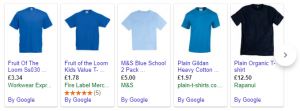It’s 2016, and simply posting a new blog article every week may or may not help your brand stay on top. To truly stand out from the sheer volume of uploads that take place daily, brands need to diversify and optimize each piece of content. A properly developed and marketed ebook can take your content offerings above and beyond newsletters and blog posts.

Reasons to Invest in an Ebook
At first, you may think “Aren’t ebooks just a way for companies to trick their audience into sharing contact information?” or “I’ve never read an ebook of value, so why would I invest in one?” Some companies do take advantage of an ebook’s purpose. They use the format as a way to disguise the same information they’ve been peddling for years. However, valuable ebooks do exist. They can help you:
- Generate leads. Whether you choose to gate your content or not, simply creating and marketing valuable content will lead interested consumers to your door. If you focus on delivering value-driven content first, your audience will never walk away thinking of the experience as a waste of time.
- Build credibility and thought leadership. Ebooks allow companies to showcase their industry experience and expertise. As a general contractor, retail store owner, lawyer, or any other business owner, you have a reason for starting your business. You understand something that would help your customers in their own lives. An ebook is a perfect way to demonstrate your authority and build rapport with potential customers.
- Maintain competitiveness. While ebooks are popular in certain industries, you won’t find links or download forms on every website you access. If you’re willing to take the time to write a free, expertly written ebook for your customers, then you automatically have a leg up on competitors.
- Create value. Consumers appreciate when companies add value to the relationship in any way. Developing an ebook shows that you care about more than your profit—you genuinely want to help your clients reach their goals. When you find your niche for writing an ebook, consumers will thank you for your insights.
Types of Ebooks
Here are five kinds of ebooks that may help you narrow down your search for the perfect topic:
- Know something about industry trends, consumer insights, or new advancements? Publish your company’s findings in a research report to help readers understand and use data.
- The ultimate guide. Ultimate guides are designed to take a reader from A-Z on a topic. For a boutique website company, that might mean going through the steps of a redesign from a customer standpoint. For a construction firm, that might mean explaining the decision-making process a customer will need to understand for a new buildout. Find your niche, and include everything you know in this type of ebook.
- A beginner’s guide. If you don’t want to get too in-depth, go for a beginner’s guide. These are designed to cover the basics of any topic. For companies that focus on comprehensive product lines, such as perfumes or essential oils, a beginner’s guide may educate readers on the basic idea of aromatherapy and what popular fragrances can do.
- Product/service exploration. These are excellent for launching a new product or service. Use an ebook to delve into the new offering and offer some actionable information that companies can use today.
- Industry exploration. Explore your niche in the industry, past advancements, and future trends, or focus on the larger industry as a whole. If you have expertise in your field, use it to share insights—including what your company has learned over the years and what you think the future holds. People are always hungry to read about first-person experiences in the field.
In the world of ebooks, anything goes as long as you have a clear structure. Many feature a problem-solution structure. If you get stuck, do a simple search for ebooks in your field. Skim the titles and descriptions for some ideas about your own content.

Hammering Out the Details
After you decide to invest in an ebook, avoid rushing through the content production process. Take time to ensure the finished product meets your content goals. Consider these details to produce an ebook that serves you well:
- Don’t sell it unless you’re sure. Avoid asking for financial compensation for any ebook; readers will likely go elsewhere. If you plan to gate your ebook (e.g., ask for an email address or other contact information), make it worthwhile. Share only highly valuable content, and consider offering an additional promotion, like a discount or special.
- Length is good—to a point. Many companies think they need to create a textbook if they invest in an ebook. Ebooks come in all shapes and sizes. Some contain only 15-20 pages, while others may run upwards of 100. Let the content guide you to the correct length for the topic. You’ll know when you’ve sufficiently covered every point. Don’t belabor it.
- Work with content writers if you need to. You don’t have to be a writer to produce a great ebook that adds value to your brand. You just need access to a writer who can take your ideas and run with them. Partner with content writers who can transform your knowledge into an engaging and accessible piece. With a verbal interview or some handwritten notes, a capable writer can turn around an ebook in a short time.
- Producing the book is only half the battle. Think about your strategy for getting the word out. You may need a separate landing page, teaser content, targeted emails, and social media posts. Consider creating a short video to introduce the topic and your reason for writing. Ebooks often require their own marketing campaigns, but they also produce a better return than other types of content.
- Don’t forget to frame the content. Set the stage for why you’re writing the ebook, and include a paragraph about your organization in every ebook. While you shouldn’t use the content to directly sell your products or services, your audience needs to know who you are and why you have an interest in the topic. Don’t post generic boilerplate information, though. Include a blurb about how your brand connects with the topic at hand.
Ebooks sound like huge undertakings, but they don’t have to be. With the right goals and a solid strategy, you can start working on a brand-positioning ebook right now.
Business & Finance Articles on Business 2 Community(56)





